1.866.316.7268 [email protected]
Enjoy the good life – Japanese style. Our Onsen tours only stay at Onsens. On the Western Japan Onsen tour, you will enjoy the best local food specialties and the famous Japanese hospitality while relaxing in some of the best onsens in Japan and visiting out-of-the-way destinations.
Don’t hesitate to contact us. We are an expert team and we are happy to talk to you.
1.866.316.7268
Visiting an onsen is the Japanese version of the good life. At Japanese onsens, you will enjoy excellent food and experience the famous Japanese hospitality. And don’t forget the Japanese baths. The Japanese have raised bathing to a whole new level, and they are an important experience that should be included in every visit to Japan. And in between all of this, we will be visiting some of Japan’s most remote sightseeing destinations. If you like Japanese food and enjoy the Japanese baths, this tour should not be missed.
At Ibusuki Onsen, you will experience “sunaburo” (sand baths) where you are covered up to your chin with thermally-heated sand. Explore the many cafes, shops and restaurants at the rural Yufuin Onsen. Visit the many “hells” at Beppu, and the nearby statues of Buddha carved from rock cliffs in Usuki.
Soak in the waters of Dogo Onsen, one of the oldest onsen in Japan with more than a 1,000 year history. Visit Iya Valley Onsen and Iya Valley, one of the most remote regions of Japan. Sample the two types of water at Arima Onsen. The brown “kinsen” (Gold spring) with its high concentrations of iron is said to be good for skin ailments and muscle pain. The clear “ginsen” (Silver spring) contains radium and carbonate and is said to cure various muscle and joint ailments.
And last, but not least, Kinosaki Onsen was discovered around the 8th century and since then the town has developed into a charmingly old-fashioned onsen town. In the evenings guests of the local ryokans stroll about town in yukata (cotton kimon) and geta (wooden clogs), visiting the numerous public baths and nostalgic game arcades.
PLEASE NOTE: Tattoos in Japan are stigmatized, and therefore tattoos are not widely accepted at onsen baths in Japan. If you have tattoos, you may not be allowed to use the baths.
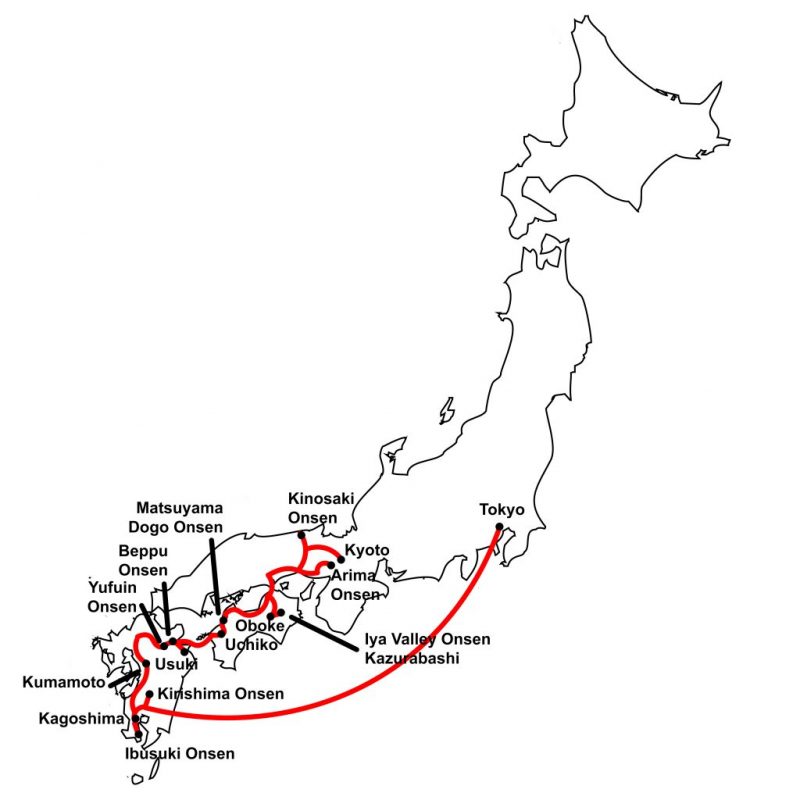
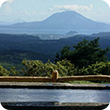
Kirishima Onsen
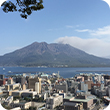
Senganen Garden, Shiroyama Park, Black Pork Katsu Lunch
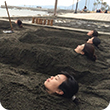
Sand Baths
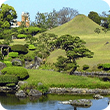
Kumamoto Castle
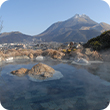
Free Day
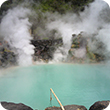
Shiraike Hell, Oniyama Hell, Kamado Hell, Umi Hell, Oniishibozu Hell
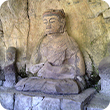
Usuki Stone Buddhas, Usuki Samurai District, Fugu (Blowfish) Lunch
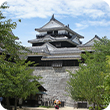
Matsuyama Castle
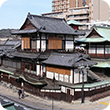
Free Afternoon
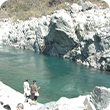
Oboke Gorge Sightseeing Boat Cruise, Lapis Oboke Museum
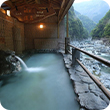
Free Time
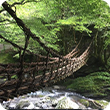
Peeing Boy Statue, Kazurabashi Vine Bridge
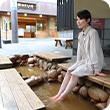
Free Time
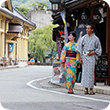
Free Time
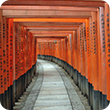
Free Time
After clearing customs and immigration, you will be met at Tokyo’s Narita Airport or Haneda Airport by a Samurai Tours meeting staff member. They will help you board the bus to the hotel. After checking in, the evening is free. No meals are included.
Travel: 1 to 1 1/2 Hours; Walking: Light
After breakfast, we will begin with a welcome/orientation meeting. We will then travel by limousine bus to Haneda Airport. From there the group will fly to Kagoshima Airport in southern Kyushu, and then travel to Kirishima Onsen. Kirishima Onsen lies on the lower slopes of the Kirishima Mountains with a distant view over Kagoshima Bay and Sakurajima, Japan’s most active volcano. Kirishima Onsen is one of Japan’s leading hot spring resorts with high quality, sulfuric hot spring waters. Before leaving the hotel in Tokyo, you will prepare your main luggage to be sent to Yufuin Onsen. You will travel with enough items for 3 days and 2 nights from Tokyo to Ibusuki Onsen and eventually to Yufuin Onsen. Breakfast at the hotel and dinner at the hotel are included.
Travel: 3 1/2 Hours; Walking: Light
After checking out of our hotel, we will travel to nearby Kagoshima. Kagoshima is Kyushu’s southernmost major city and the capital of Kagoshima Prefecture. The city is often compared with its Italian sister city Naples due to a similarly mild climate, palm tree lined streets, relatively hot tempered inhabitants and Sakurajima, Kagoshima’s Vesuvius. We will start our visit of Kagoshima at Senganen Garden, a Japanese style landscape garden along the coast north of downtown Kagoshima. One of the garden’s most striking features is its use of Sakurajima and Kagoshima Bay as borrowed scenery. Senganen was constructed in 1658 by the wealthy Shimazu Clan, one of the most powerful feudal clans during the Edo Period. The Shimazu ruled the Satsuma domain (present day Kagoshima) for almost 700 years until the end of the feudal age in 1868. They continued to be influential into the modern era as some of the earliest adopters of Western science and technology. Next we will visit Shiroyama Park. With an elevation of 107 meters, the mountain formerly served as the site of a castle fortification, which led to its name. Shiroyama literally means “castle mountain” in Japanese. The park is most famous for its Shiroyama Observatory with spectacular views over downtown Kagoshima, Kagoshima Bay and Sakurajima. Shiroyama was also the site of the final battle of the Satsuma Rebellion in 1877. The local hero Saigo Takamori,(the real Last Samurai) is said to have made his last stand at Saigo Cave, located within the park.Before leaving Kagoshima, we will enjoy the local food specialty Kagoshima is known around Japan for: Black Pork Katsu (deep fried pork cutlet). Later in the day we will travel to Ibusuki Onsen where we will be staying overnight. Located on the southern tip of the Satsuma Peninsula facing Kagoshima Bay, Ibusuki is an onsen town that is famous for its sand baths, where bathers are buried in naturally heated sand. At sand baths, bathers are provided with special yukata robes and are then buried by staff members in hot sand that is heated by natural steam coming from underground. After staying buried for typically 10 to 20 minutes, guests wash off the sand and enter regular hot spring baths. After checking into the hotel, you are free to enjoy the sand baths located at the hotel. Before leaving the hotel in Tokyo, you will prepare your main luggage to be sent to Yufuin Onsen. Breakfast and dinner at the ryokan, lunch at a local restaurant.
Travel: 2 Hours; Walking: Medium
After breakfast we will travel to Kumamoto. The capital of Kumamoto Prefecture, Kumamoto is a major city on Kyushu’s west coast with a population of 650,000. The city is most famous for its castle, which is one of Japan’s largest and most complete and most impressive castles in Japan. With large castle grounds and a variety of buildings, Kumamoto Castle offers its visitors one of the most complete castle experiences in Japan. In the afternoon, we will continue our travels to Yufuin Onsen, a popular hot spring resort. Yufuin has a wealth of art museums, cafes and boutiques. We will retrieve our main luggage from the hotel at Yufuin Onsen.
PLEASE NOTE: Kumamoto Castle was severely damaged in a major earthquake several years ago. Parts of the castle are still undergoing renovations and repairs.
Travel: 4 1/2 Hours; Walking: Medium
Today is a free day to enjoy Yufuin Onsen. You can spend the day exploring the many shops, cafes and restaurants in the central part of the town. Or visit the several public baths. Be sure to visit the beautiful Lake Kinrinko at the base of Mt. Yufu. The lake is surrounded by walking paths as well as more shops and cafes. Be sure to try the local specialty of chicken tempura for lunch. Breakfast and dinner included at the ryokan.
Travel: N/A; Walking: TBD
After breakfast we will take a short bus ride to Beppu. Beppu is one of the largest and most popular onsen in Japan. Beppu is also known for the many different foods the locals cook using the onsen waters. After dropping off our luggage at the hotel, we will tour some of the more popular “hells” in Beppu. There are many of these located around Beppu, proof of the thermal activity in the Beppu area. We will even have an opportunity to sample the food cooked in the onsen water such as eggs, corn, potatoes, etc. Before leaving in the morning, you will prepare your main luggage to be sent to Matsuyama/Dogo Onsen. You will travel to Uchiko and Matsuyama with an overnight bag only. Breakfast and dinner at the ryokan is included.
Travel: 1 1/2 Hours; Walking: Medium
After breakfast we will travel to Usuki. Usuki, a former castle town, is famous for its numerous stone Buddhas which are sculpted into the rock cliffs and designated as national treasures. We will walk around the pleasant well-preserved Samurai District. We will also visit the Inaba Residence, the home of the feudal lord family that ruled this area of Japan. While in Usuki, we will enjoy a lunch of Fugu (blowfish), the local specialty. If not prepared correctly, the Fugu can be poisonous. Chefs must be trained and licensed before they are allowed to prepare fugu. Breakfast and dinner at the ryokan, lunch at a local restaurant.
Travel: 3 Hours; Walking: Heavy
After breakfast we will travel by ferry to Yawatahama on the island of Shikoku. Shikoku is the smallest and the least populous of the four main islands of Japan. After arriving on Shikoku, we will travel to the nearby city of Uchiko. Uchiko was once a prosperous center of wax and paper production. Uchiko’s historical district looks just as it did over 100 years ago, when wealth and prosperity came to Uchiko through its wax trade. We will also visit Uchiko-za, a fully functional kabuki theater. The theater was built about 100 years ago, and still hosts kabuki and bunraku performances. Late in the afternoon, we will continue on to Matsuyama and Dogo Onsen. Breakfast at the ryokan and dinner at a local izakaya included.
Travel: 3 1/2 Hours; Walking:Medium
In the morning, we will tour the Matsuyama Castle. Matsuyama Castle is one of Japan’s twelve “original castles”, i.e. original castles which were built before the post-feudal era (1868). The castle is located on Mount Katsuyama, a steep hill in the city center that provides visitors with a bird’s eye view of Matsuyama and the Seto Inland Sea. Matsuyama Castle was constructed between 1602 and 1628. In 1635, the castle got assigned to a branch of the Matsudaira family, relatives of the ruling Tokugawa, and it remained in their hands until the end of the feudal era. The current three storied castle tower was constructed in 1820 after the original five storied tower was destroyed by lightning. The afternoon is free to enjoy the Dogo Onsen area’s shops and restaurants. Dinner and breakfast at the ryokan.
Travel: 30 minutes; Walking: Medium
After breakfast, we will travel to Oboke. Oboke Gorge is a narrow, steep sided gorge near the entrance to the Iya Valley. Created by the swirling rapids of the Yoshino River, the name means “big dangerous step”. Here we will board the Oboke Gorge Sightseeing boat cruise. On this gentle 30 minute boat ride down the Yoshino River, guides point out interesting rocks, many of which resemble different animals along the way. We will also stop at the nearby Lapis Oboke. Lapis Oboke is a rest area (Michi no Eki) near Oboke Station with a tourist information center, restaurant and shop. Inside is the funny little Yokai Museum featuring models and dioramas of the ghosts and monsters (yokai) that are part of the local folklore. A small gem museum resides on the floor above the Yokai Museum. Before leaving Oboke Gorge, we will enjoy Saunki Udon, the local specialty. Later in the afternoon, we will travel to the Iya Valley Onsen where we will be staying overnight. The onsen is near the top of the 200 meter deep gorge, with a cable car providing access to the river-side outdoor baths. After checking in, we will walk the short distance to the “Peeing Boy” statue. This statue, a copy of the famous “Manneken Pis” statue in Brussels, faces the void of the gorge. Before leaving Dogo Onsen, you will prepare your luggage to be sent to Kinosaki Onsen. You will travel to Oboke, Iya Valley Onsen, Arima Onsen and Kinosaki Onsen with an overnight bag only. Brekaast and dinner at the ryokan and lunch at a local restaurant is included. .
Travel: 4 Hours; Walking: Light
We will start the day by visiting the nearby Kazurabashi Vine Bridge in Iya Valley, a remote mountain valley located in the center of Shikoku. In the past, vine bridges were the only way of crossing the Iya River. History is unclear of their origins. Legends say that Kobo Daishi built the first one, while others say they were first built by Heike refugees hiding in the Iya Valley after their defeat in the Genpei War (1180-1185). The Kazurabashi is one of the few vine bridges that still remain. It has a 45 meter span and is 15 meters above the river. Later we will travel to Arima Onsen. With a history of over one thousand years, Arima Onsen is considered one of Japan’s oldest hot spring resorts and has often stood at or near the top of onsen rankings for Western Japan. The town has two types of hot spring waters which spring up at various sources around town: the Kinsen (“gold water”) is colored brown with iron deposits and is said to be good for skin ailments and muscle pain, while the clear Ginsen (“silver water”) contains radium and carbonate and is said to cure various muscle and joint ailments.Breakfast at the ryokan and dinner at the ryokan included.
Travel: 4 Hours; Walking: Light
The morning is free to explore Arima Onsen. Although Arima Onsen has a modern look today, one can still find several narrow lanes lined by traditional wooden buildings when strolling around the center of town. Due to its compact size, the small town can be explored entirely on foot. Later in the day we will travel to Kinosaki Onsen. Breakfast and dinner at the ryokans included.
Travel: 3 1/2 Hours; Walking: Light
Today is a free day to enjoy the many public baths, or ride to the top of the ropeway for a panoramic view of Kinosaki Onsen and the surrounding area. Or, just relax at one of the many cafes. Breakfast and dinner at the ryokan is included.
Travel: N/A; Walking: TBD
We will travel to Kyoto in the morning. The afternoon is free to explore Kyoto on your own. We will enjoy the Sayonara dinner in the evening. Breakfast at the ryokan and dinner at a local restaurant.
Travel: 3 Hours; Walking: Light
It’s time to say “sayonara” (Goodbye). The group will depart at 8:00 am unless we have determined you need to leave earlier (in which case you will not be provided sending service). You will be escorted to the Kyoto train station, where you will return on your own to Tokyo’s Narita airport, Tokyo’s Haneda airport or Osaka’s Kansai airport by train. (If you are flying out of Narita or Haneda Airport, be sure to schedule a flight after 15:00 to allow yourself enough time to catch your flight.)
Travel: 1 1/2 to 4 Hours; Walking: Light
Walking level descriptions:
Light – 0 to 2 miles on level ground
Medium – 2 to 4 miles on level ground or 0 to 2 miles on hilly ground
Heavy – 4 to 6 miles on level ground or 2 to 4 miles on hilly ground
Our tours and tour itineraries are the best, but as the saying goes, “you can’t make everyone happy all of the time”. There may a specific destination or a specific experience you may want to include in your visit to Japan that may not be included your tour. Choose from our Add On tours to include your interests and make your Japan tour even better.
Click HERE to view all of the Add-On Tours.
Or, use the arrows to scroll though the recommended list of Add-On Tours for this tour.
For those requiring meeting or sending services on other than the scheduled arrival/departure dates, there will be a $100 fee for the meeting service from the airport into Tokyo or the sending service to the Kyoto train station.)
Each tour member receives an electronic copy of our tour handbook. This handbook is full of tips and suggestions taken from our Japan travel experiences that allow you to better plan and prepare for your trip, and therefore enjoy your trip even more. The tips and suggestions included cover everything from how to save while exchanging money, what to pack, some basic Japanese-language tips, general etiquette do’s-and-don’ts, ryokan customs, etc.
Our small group was perfect as we got along well and could move quickly from place to place as compared to a large group.
